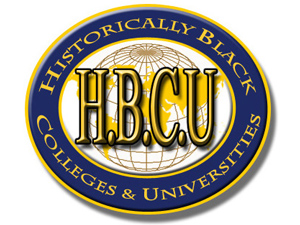Study: Black colleges payoff for Black students
By Nisa Islam Muhammad -Staff Writer- | Last updated: Jun 5, 2011 - 12:20:48 PMWhat's your opinion on this article?

|
New research from Morehouse College economist Gregory N. Price and two fellow economists from Howard University, William Spriggs and Omari H. Swinton, finds graduates of HBCUs do better in the labor market long term than non-HBCU grads.
Their report, “The Relative Returns to Graduating from a Historically Black College/University,” considered the benefits of earning a baccalaureate degree from an HBCU compared to a non-HBCU for Black Americans.
“Our results lend support to the idea that HBCUs continue to have a compelling educational justification, as the labor market outcomes of their graduates are superior to what they would have been had they graduated from a non-HBCU,” according to their article.
The researchers “Suggest that HBCU graduates realize higher earnings relative to non-HBCU. As such, our results lend support to the idea that HBCUs have a comparative advantage in nurturing the self-image, self-esteem and identity of graduates, which theoretically matters for labor market outcomes.”
The study also challenges earlier research by Roland Fryerand Michael Greenstone that found, “In the 1970s H.B.C.U. matriculation was associated with higher wages and an increased probability of graduation” relative to attending a non-HBCU.
“By the 1990s, however, there is a wage penalty, resulting in a 20 percent decline in the relative wages of H.B.C.U. graduates between the two decades.”
The Morehouse and Howard economists' results “suggest that HBCUs afford its graduates relatively superior long-run labor market outcomes” which “stand in contrast to the recent results of Fryer and Greenstone—who find that over time the relative returns to graduating from an HBCU have become negative—and complementary to those of Mykerezi and Mills (2008) who find that HBCUs have a positive effect on the long-run labor market earnings of black males.”
“Moreover, we cannot conclude, as Fryer and Greenstone (2010) do, that HBCUs retard Black progress, as our results suggest that HBCU graduates realize higher earnings relative to non-HBCU graduates. As such, our results lend support to the idea that HBCUs continue to have a compelling educational justification, as the labor market outcomes of their graduates are superior to what they would have been had they graduated from a non-HBCU.”
Why HBCUs?
Since emancipation HBCUs have been among primary vehicles for social, political and economic progress for Black Americans. They've produced some of the best and brightest in Black America. “Having the knowledge of self can't be underestimated when it comes to the learning experience and embarking on that journey of higher learning. I believe HBCUs give our children the foundation through the experience of being around their own kind, which strengthens their self-identity and knowledge of self,” said Dr. Larry Muhammad, head of the Nation of Islam's Muhammad University of Islam.
“Well, I wanted to go to Morehouse, but circumstances kept me at a Big 10 school that offered a high quality education, but a seriously racist and selfish environment. I saw clearly the need for us to have our own to ensure that young people have a positive, God-centered environment that supports who they are and gives them fertile ground to grow in.”
He added, “You had to really strive and fight to maintain on the path that God was calling you for. That's a dangerous environment to be in when youth have to take charge of themselves and their future because the environment created is so toxic. HCBUs must be supported and soon we need to sit down with ALL of our educators and policymakers and begin targeting one or more of theses schools to align with the vision of The Honorable Elijah Muhammad of having a truly independent university system.”
According to the report, “HBCUs have been viewed analytically as labor market interventions that impact the wages of attendees and graduates. In general, the interest has been whether or not HBCU graduates fare better or worse in the labor market relative to Black graduates of non-HBCUs.”
“Working and going to school with your own peers helps to build camaraderie that is desperately needed in our community when it comes to Black business success and development. This is a big plus for Black colleges!” said Dr. Muhammad.
Related news:
Despite naysayers, Black Colleges still relevant (FCN, 01-30-2011)
Arming Howard University: The Master Teacher's Assignment (FCN, 05-16-2011)
Black medical schools outperforming White counterparts, study finds (FCN, 07-19-2010)
Study Finds HBCU Pours More Than $300 Million into New Orleans Economy (FCN, 08-21-2009)
Grad rates for Black college athletes increase (FCN, 04-22-2009)
Web connects Black college students, alumni (FCN, 11-13-2007)
INSIDE STORIES AND REVIEWS
-
-
About Harriett ... and the Negro Hollywood Road Show
By Rabiah Muhammad, Guest Columnist » Full Story -
Skepticism greets Jay-Z, NFL talk of inspiring change
By Bryan 18X Crawford and Richard B. Muhammad The Final Call Newspaper @TheFinalCall » Full Story -
The painful problem of Black girls and suicide
By Charlene Muhammad -National Correspondent- » Full Story -
Exploitation of Innocence - Report: Perceptions, policies hurting Black girls
By Charlene Muhammad -National Correspondent- » Full Story -
Big Ballin: Big ideas fuel a father’s Big Baller Brand and brash business sense
By Bryan Crawford -Contributing Writer- » Full Story






 Click Here Stay Connected!
Click Here Stay Connected!








